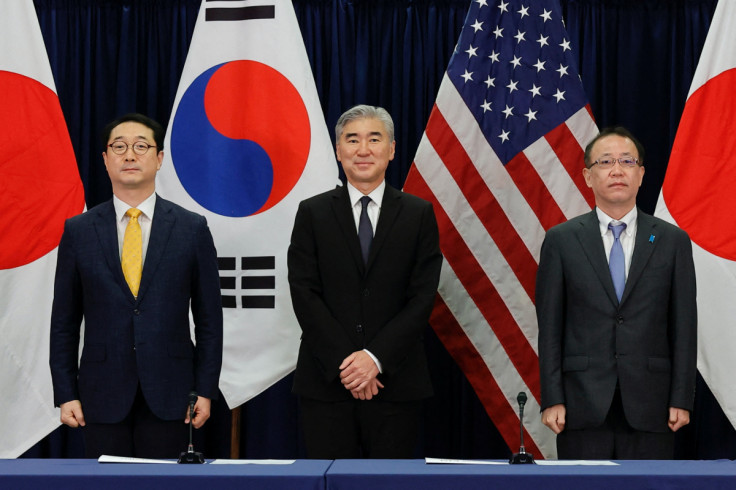South Korea Imposes Sanctions On North Korean Individuals And Groups Over Crypto Theft
KEY POINTS
- S. Korea sanctioned 4 N. Korean individuals and 7 entities as part of its measures to counter illegal cyber activities
- The government also sanctioned 8 wallets linked to the Lazarus hacking group
- A UN report says North Korean hackers stole more cryptocurrencies in 2022 than any other year
The South Korean government has issued unilateral sanctions against North Korean individuals and seven other entities for allegedly raising funds for the hermit country's missile and nuclear programs via illegal activities, including crypto theft.
In an announcement on Feb. 10, the South Korean government said it has introduced sanctions as means to counter illegal cyber activities, which are among the main sources of North Korea to finance its military programs.
"The South Korean government has decided to take specific measures to counter illegal cyber activities, which are one of North Korea's main sources of funding for nuclear and missile development," the announcement read.
The sanctions, which are South Korea's first-ever independently imposed, target actors and institutions linked with the Reconnaissance General Bureau - North Korea's main intelligence agency - which is believed to be behind Pyongyang's cyberwarfare operations.
"The South Korean government decided to designate 4 North Korean individuals and 7 institutions that financed North Korea's nuclear and missile development through illegal cyber activities, such as winning orders for overseas IT work, as subject to independent sanctions," the announcement, translated using Google Translate, read.
The blacklisted individuals - Park Jin-hyok, Song Rim, Oh Chung-Seong and Jo Myong-rae, are believed to have ties with the Lazarus Group.
Of the four blacklisted individuals, the most notorious is Park, who works for Chosun Expo Venture, an alleged front company linked to the hacking group Lazarus, and was blacklisted by the U.S. in 2018.
South Korea also sanctioned threat groups linked to North Korea, including Lazarus hacking group, Andariel, Chosun Expo Joint Venture, Bluenoroff, the RGB's Technology Reconnaissance Team, Unit 110 hacking group and the Pyongyang University of Automation (Mirim University and Mirim College).
The South Korean government also sanctioned eight wallets linked to the Lazarus hacking group. "The government has been actively making efforts to respond to North Korea's cyber threats based on close cooperation between South Korea and the U.S. and the international community," the Ministry of Foreign Affairs said.
South Korean regulations prohibit trading cryptocurrencies with blacklisted individuals and entities without permission from the country's Financial Services Commission.
These hackers, according to the South Korean Ministry of Foreign Affairs, allegedly stole digital currencies worth over $1.2 billion since 2017. More than half of this amount came from the attack on Axie Infinity's Ronin bridge, which took place in March 2022.
A confidential report from the United Nations disclosed that North Korean hackers stole more cryptocurrencies in 2022 than any other year, which amounted to approximately between $650 million and $1 billion.

© Copyright IBTimes 2024. All rights reserved.



















